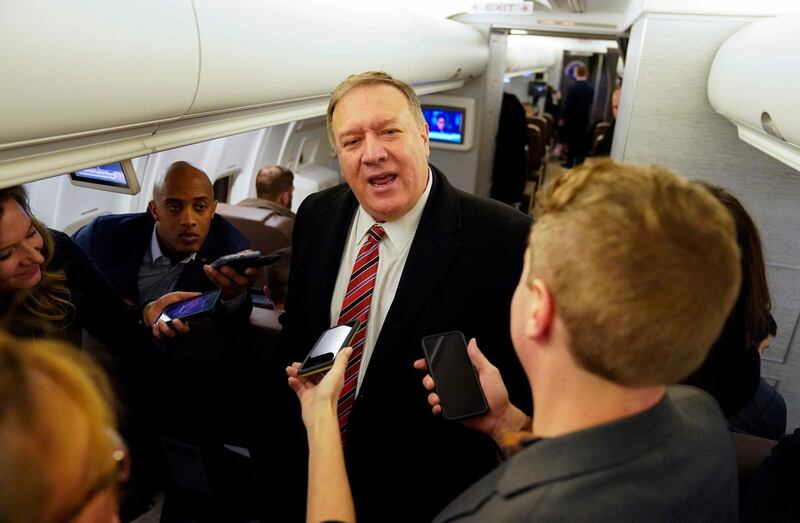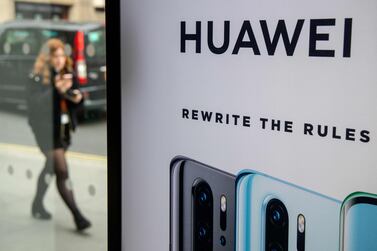The Chinese tech giant Huawei poses a “real risk” to UK security, US Secretary of State Mike Pompeo has warned.
Mr Pompeo was travelling to Britain and said London still had a chance to re-evaluate its decision.
"This is an extension of the Chinese Communist Party with a legal requirement to hand over information to the Chinese Community Party," he said.
"We’ll evaluate what the United Kingdom did. We will make sure that when American information passes across a network, we are confident that that network is a trusted one."
Mr Pompeo’s visit to the UK had been billed as one of support to America's close ally just before Britain leaves the EU.
But the visit comes at a delicate moment for the relationship between Britain and the US.
UK Prime Minister Boris Johnson will be looking to make progress on a trade deal with Mr Pompeo.
The US, which shares intelligence with Britain through an alliance of five countries that also comprises Canada, Australia and New Zealand, has called on Britain to block Huawei’s involvement in its 5G network.
The US has placed Huawei, the world’s largest telecommunications company, on a blacklist, fearing that its technology may allow a back door to Chinese espionage.
The tech company’s chief financial officer, Meng Wanzhou, who is the daughter of the company’s founder, is battling a US extradition request to Canada on fraud charges.
The UK has decided that it can lessen the security threat posed by Huawei by keeping the company out of central parts of its telecoms network that handle sensitive data.
Under the rules laid out by London, the Chinese company will be limited to providing equipment such as antennas that transmit directly to people's personal devices.
Speaking in the British Parliament, Mr Johnson defended the decision on the grounds that further limits or bans to Huawei’s involvement would slow the introduction of 5G in the UK.
“It is absolutely vital people in this country do have access to the best technology available,” he said.
The UK decision on Tuesday followed months of lobbying by Washington and Beijing.
The EU has also recommended member states protect the core of their networks from high-risk sellers, as Germany considers its own decision on Huawei.
"Today we are equipping EU member states, telecoms operators and users with the tools to build and protect a European infrastructure with the highest security standards so we all fully benefit from the potential that 5G has to offer," European industrial policy chief Thierry Breton said.
On Wednesday, Britain's foreign secretary Dominic Raab confirmed he had met Mr Pompeo but did not touch on the Huawei discussions.
A Foreign Office spokesperson said: “The Foreign Secretary’s discussions with Secretary Pompeo this evening focussed on future opportunities for economic and security co-operation between the UK and US.
“The pair discussed the US’ proposal for peace between Israelis and Palestinians, and the situation in Iran and Yemen, and the Foreign Secretary underlined the need to de-escalate regional tensions."







